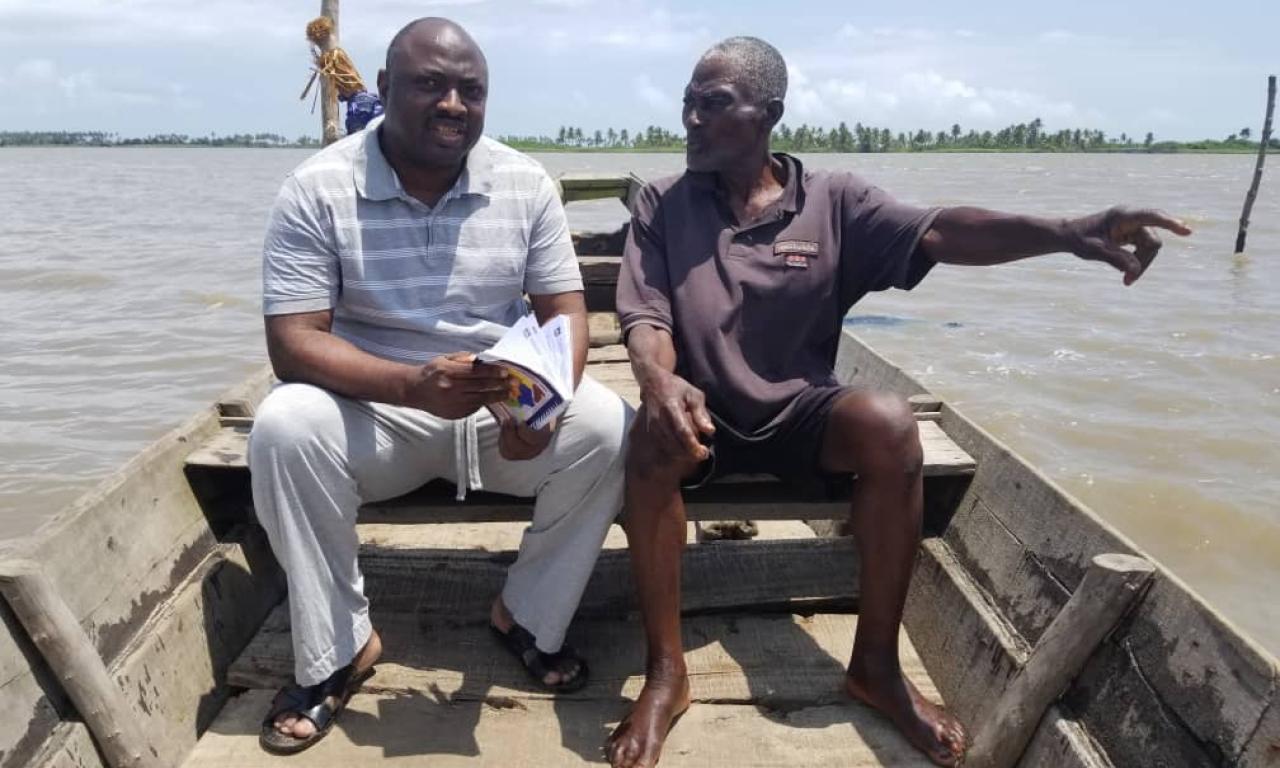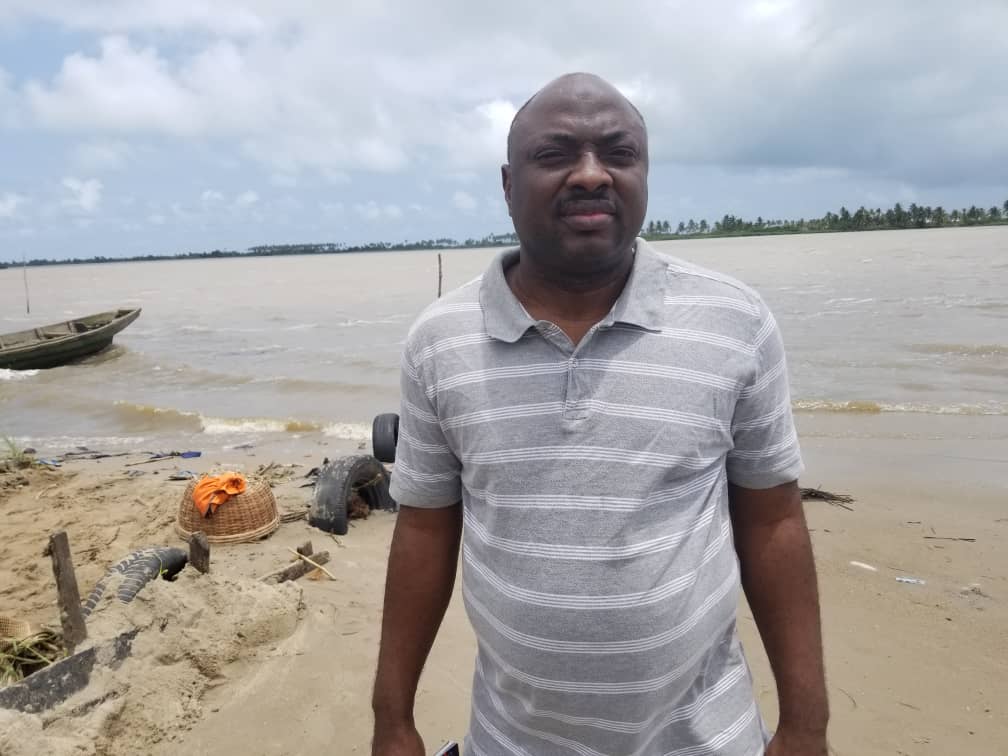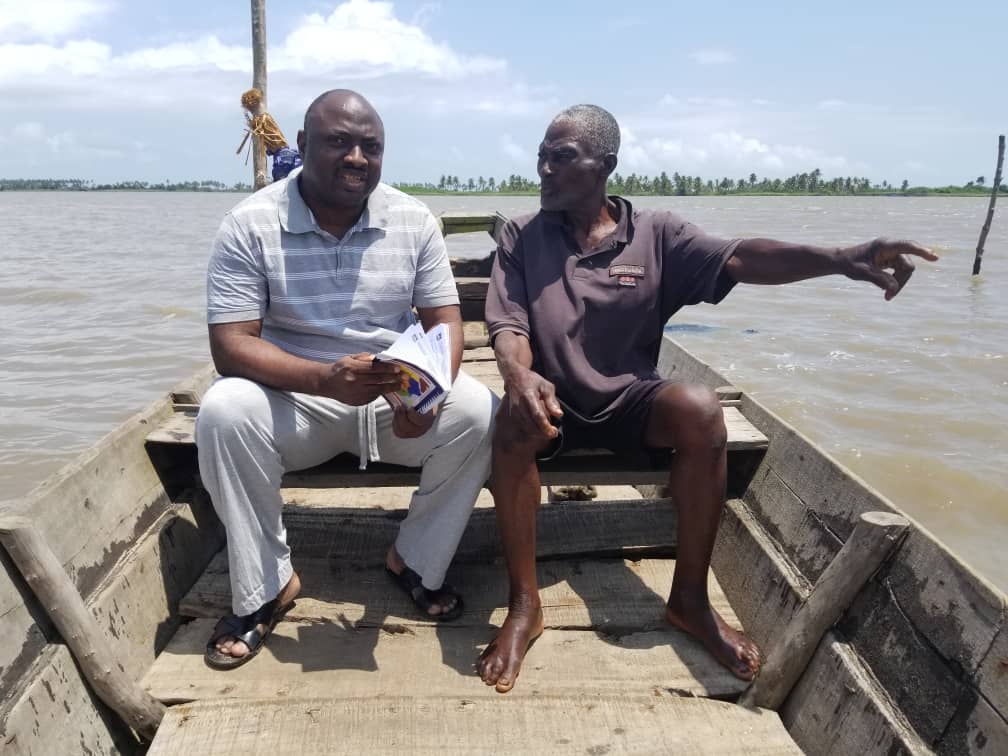
Dr. Shehu Latunji Akintola is a Professor at Lagos State University, Nigeria. He was the lead consultant for the IHH Nigeria case study. Akintola, who has worked in small-scale fisheries for about 25 years, has a particular interest in fisheries ecology, management and governance.
“Illuminating Hidden Harvests (IHH): The contributions of small-scale fisheries (SSF) to sustainable development” is a collaborative study led by the UN Food and Agriculture Organization, Duke University and WorldFish. In this series, we profile some of the more than 300 experts from over 50 countries who contributed to the 58 country case studies and thematic studies included in the IHH research due out in 2022.

Why do you believe the IHH research is important?
It harvests a new baseline of information about the contributions of SSF to the national economy, food and nutritional security, livelihood and employment at regional and national levels, climate change and many others.
What is new in the approach that IHH is taking to understand small-scale fisheries in Nigeria?
By collaborating with local researchers, the IHH study allows countries to tell their own story, and as a result, helps to portray a more complete picture of the present state of SSF. These country and territory case studies also present a novel opportunity to compare data about SSF at multiple levels and in various contexts in countries around the world.
What were the biggest challenges for your country team in completing the IHH country case study?
The biggest challenge was harvesting the information! Often, data are available only at the national level, as state and local governments rarely bother to collect fisheries data. For the data that was available, many were often deficient in scope.
In your opinion, how will the IHH report be used in this country?
I hope the findings from the IHH report can be used to inform Nigeria’s SSF fisheries management, governance and science; influence Nigeria’s national policies on food and nutrition security by promoting fish consumption; fisheries biodiversity and conservation, and encourage national climate change adaptations that benefit small-scale fisheries.
How will you and your organization use the IHH Nigeria case study?
There is no doubt that the IHH study has broadened my horizons. It has illuminated the hidden contributions of SSF and the challenges that lie ahead to properly place small-scale fisheries in the context of development and diversification of the Nigerian economy. The IHH findings will be helpful when my team and I start to design future studies in nutrition, food security and livelihood sustainability—areas of SSF that have been inadequately or not addressed.

Do you think that the IHH findings will lead to any positive or negative impact on small-scale fisheries, food security or the environment in your country? In what way?
It depends on how readily the government and non-state stakeholders consider the importance of the IHH findings to Nigeria’s economics. The findings could create the necessary momentum to maximize the huge, though largely neglected, contributions of SSF to the welfare of the citizens by increasing national food security, reducing the country's huge fish import bill and promoting sustainable fish intra-regional trade among others.
What can be done now to ensure the IHH research and your work here have the most significant effect?What role do strategic communications have?
To ensure the IHH study has the most significant effect, stakeholders must understand that unlike other fisheries sectors, which are driven largely by economic motives, SSF is a way of life and largely different from land-based food production systems. This is why strategic communications must be at the backbone of our efforts. Using a variety of tools to communicate with different stakeholders is crucial to their understanding and buy-in to projects that implement the IHH findings.
How can research like IHH help to achieve the SDGs, particularly around eradicating poverty and ending hunger in developing countries?
The precursor to poverty and hunger is often unemployment which is why fisheries, especially SSF, work hand-in-hand with many of the SDGs—not just SDG 14 (Life Under Water). The IHH research helped to further illuminate the nexuses between poverty, hunger, and livelihoods in fisheries communities and the Nigeria society at large.
What have you learned while undertaking this study?
The Nigeria case study highlighted that SSF research is only conducted at context levels, studies at state and national are extremely rare, and as a result, the literature does not adequately capture the many dimensions of Nigeria’s small-scale fisheries, such as its rich species diversity. To solve the data-poor nature of Nigeria’s fisheries systems, the management of data collection, storage and communication needs to change.
Other members of the IHH Nigeria country case study team:
- Dr. Kafayat Adetoun Fakoya, Lagos State University, Nigeria—Gender advisor for IHH Nigeria case study
- Professor Francis Maduwuba Nwosu, University of Calabar, Nigeria—IHH Nigeria team member
- Dr. Ayokunle Oluwatoyin Enikuomehin, Lagos State University, Nigeria—IHH Nigeria team member
